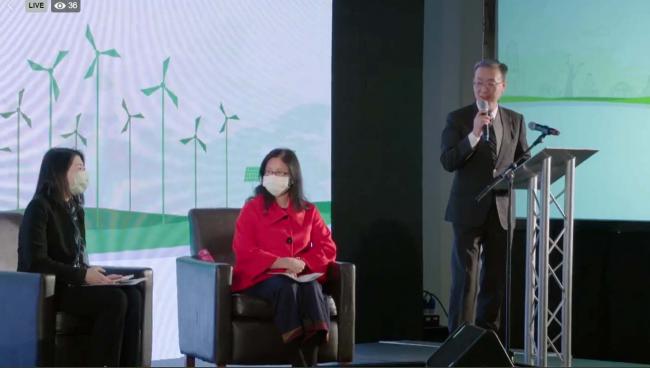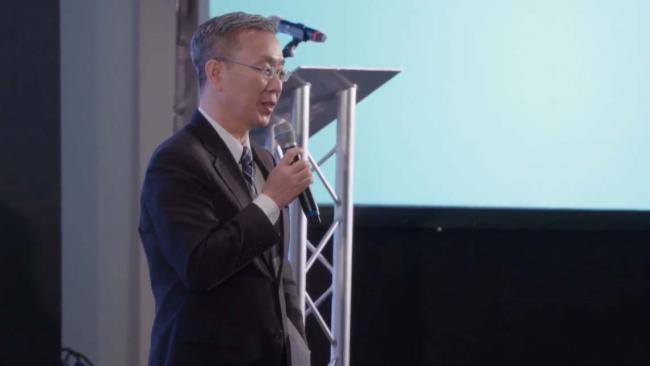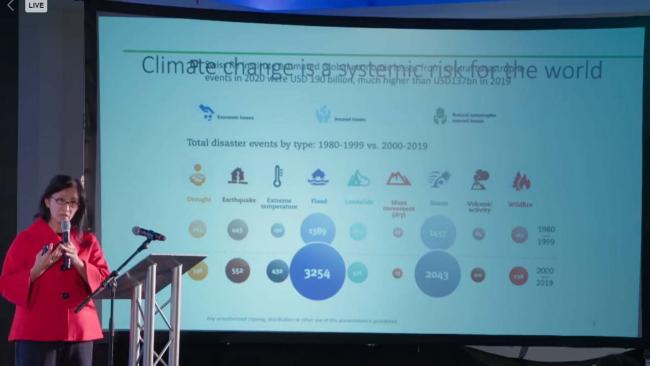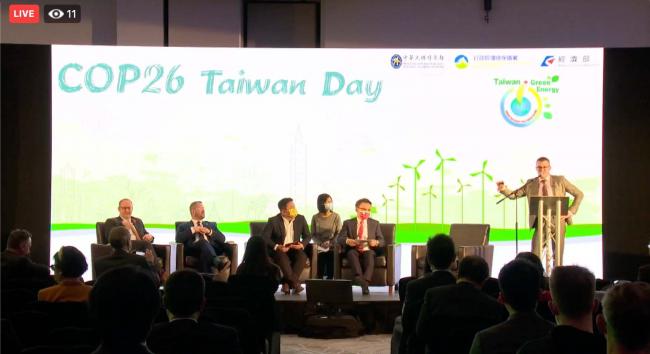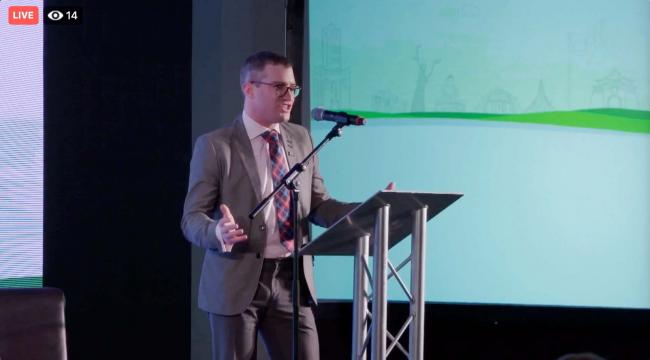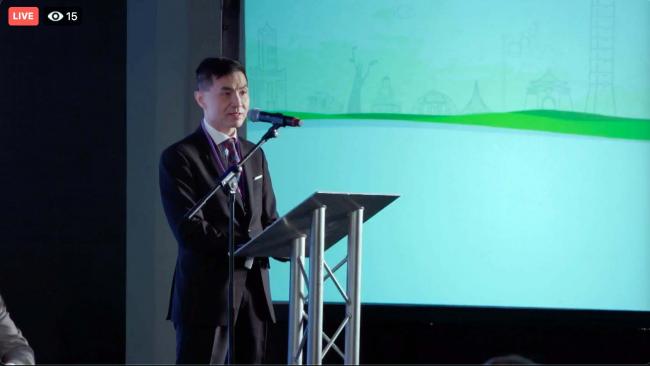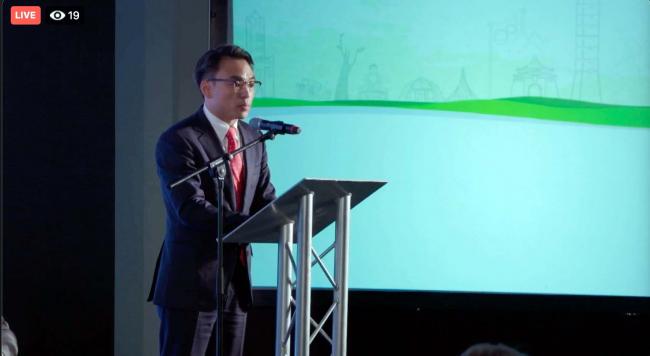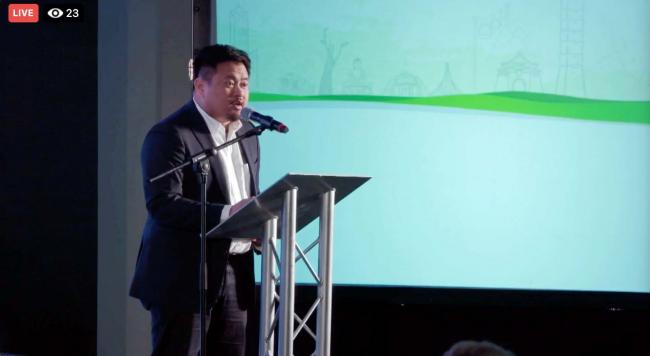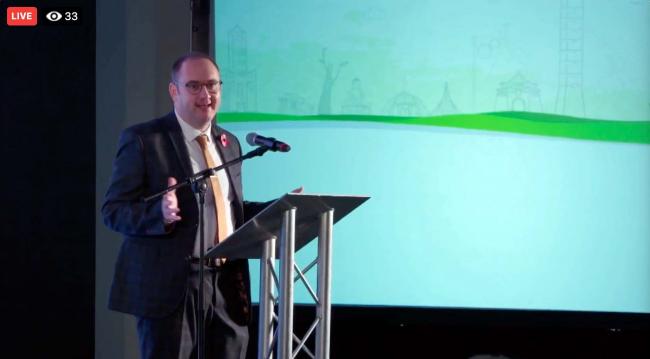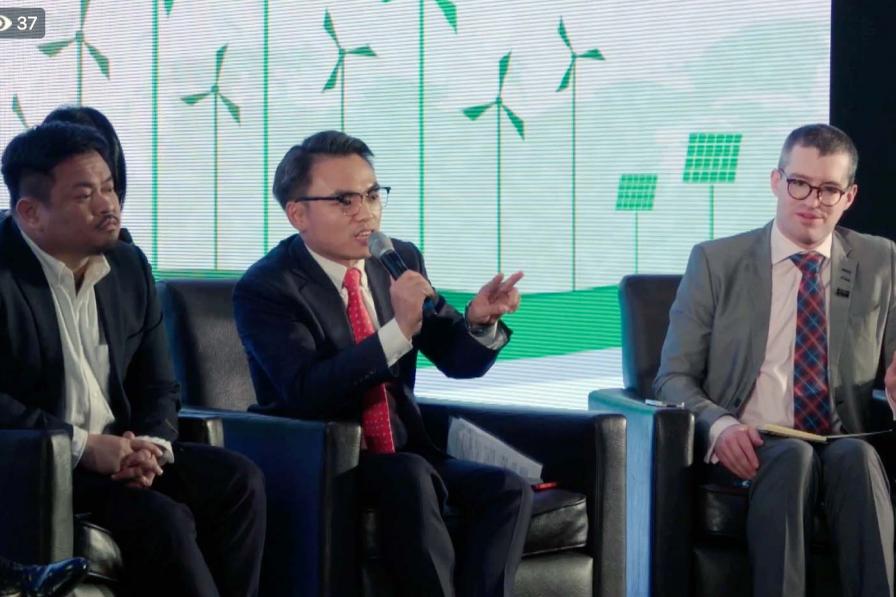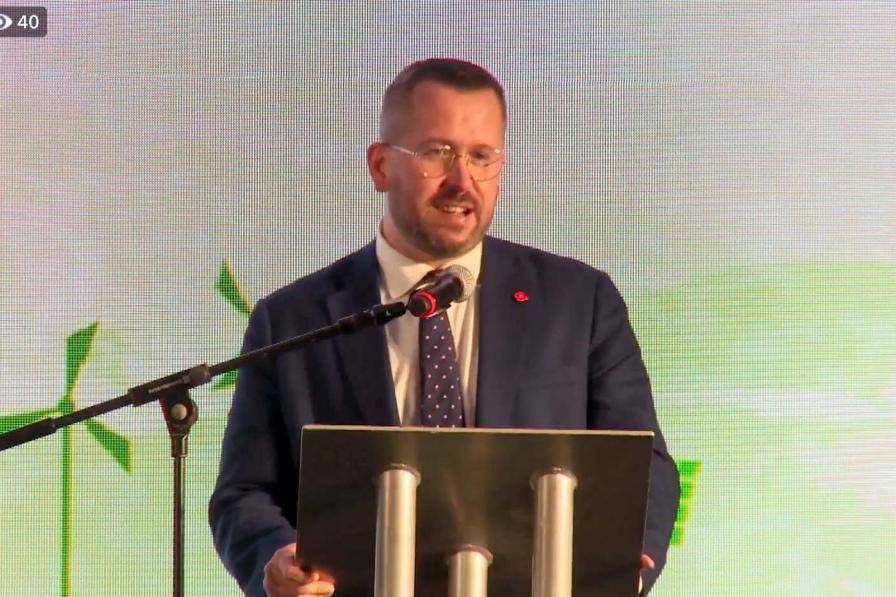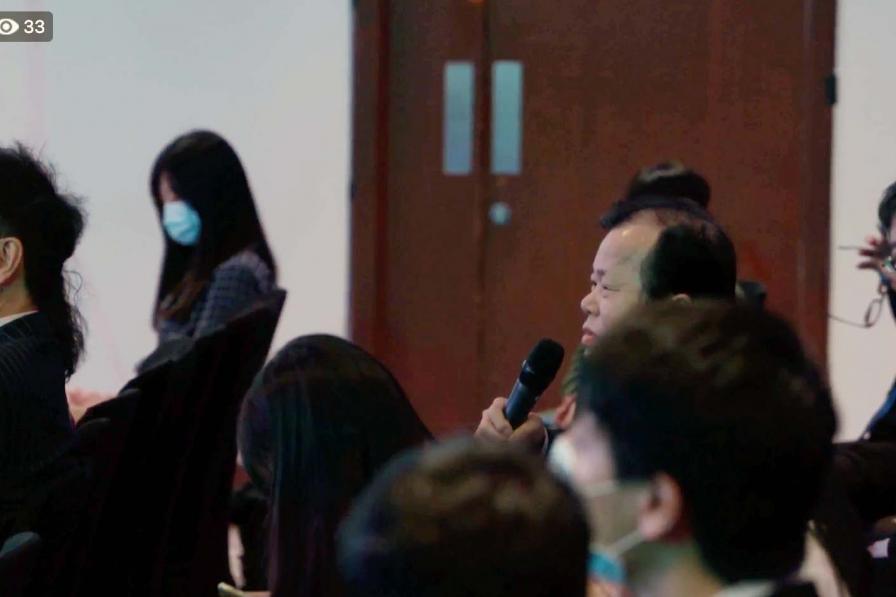Green Finance and Climate Action Exchange
Policymakers at all levels, organizations, and other stakeholders across the globe are committed to achieving net-zero emissions by 2050. Yet pursuit of this goal requires major economic and industrial transformation that must be guided and supported by policymakers, regulators, and industry associations. This event featured bilateral perspectives on pursuing the net-zero emissions commitment and various stakeholders’ experiences in taking climate action.
Organized by the Taipei Representative Office in the UK on the sidelines of COP 26, this event highlighted, among other things, the need to:
- replace the global linear economy with a circular economy that moves from “owned” to “usage-driven” consumer products, eradicates all forms of waste, and includes all stakeholders working toward common aims;
- work collaboratively with all stakeholders at both the national and international levels in pursuit of the 2050 net-zero goal; and
- combat climate change and especially weaponized climate disinformation as a security threat that amplifies all other threats facing society today.
Section 1: Green Finance
Joe Lai, Financial Supervisory Commission (FSC), moderated this section.
Charles Huang, Founder and Chair, Circular Taiwan Network, spoke on circular collaboration for the climate crisis, saying the circular, regenerative economy reverses the destructive linear model, ensures readiness for the uncertainties lying ahead, and means everyone takes responsibility for addressing the imminent crisis. He noted it: moves from “owned” to “usage-driven” consumer products; eradicates all forms of waste; and makes a system of symbiotic, rather than “win-lose,” relationships among all stakeholders.
Brenda Hu, FSC, spoke on how her commission channels public money through financial institutions for loans and investments to leverage the financial sector’s influence on companies needing immediate funding for transforming to meet the new net-zero carbon emissions goal. She said the FSC does this by engaging internationally to learn what works and then sharing this with clients and supporting them, such as on reporting requirements and guidance for stewardship and stress testing.
Sophia Cheng, Cathay Financial Holdings, and Chair, Asia Investor Group on Climate Change (AIGCC), noted a 20-year trend in developing frameworks: first for corporate governance; then corporate social responsibility; and now environmental and social governance (ESG) that recognizes economies—and profits—require a sustainable environment and a stable society. She said companies must now disclose how climate affects them and set targets and timetables for their responses. She explained that carbon fees or taxes must be great enough to trigger action so corporations cannot ignore costs to the environment. She reported, inter alia, that her group works with investment teams on training and engagement programmes for nature-based solutions for water issues and sea level management, and is making progress engaging with coal power plants.
Cheng said “It is simple: no ESG, no money.” Lai added “And also no future.”
In the ensuing discussion, Cheng said that avoiding greenwashing means encouraging good behavior among parties and letting pressure build on reluctant parties to join in eventually. She noted the depth of action has improved over twenty years.
Section 2: Bilateral Climate Action Exchange
Leslie Mabon, The Open University, UK, moderated this section.
Jason Chien-Chen Lien, Director General, Taipei Representative Office in the UK, introduced legislators representing the Legislative Yuan and the Holyrood Parliament and noted the best dialogue for tackling climate change is with lawmakers.
Hung Meng-Kai, Legislative Yuan, highlighted recently drafted legislation to achieve net-zero carbon emissions by 2050. He called for public-private sector collaboration and carbon fees, with a review of progress every five years.
Hung Sun-han, Legislative Yuan, endorsed the common democratic and sustainability values of the international community. He voiced support for reducing carbon emissions, transforming the value chain into a circular economy, formulating a practical path to attain net-zero, and contributing research to address the climate crisis. He called for enhancing energy efficiency, increasing renewable energy, and developing carbon removal technologies.
Stewart McDonald, Holyrood Parliament, discussed climate change’s threat to security, citing Barbados’ statement at COP 26 that a 2˚C temperature rise will be a death knell for many people and noting that climate change is a threat multiplier to everything humanity has built. He underscored the particular threat to food supplies, island nations, and entire states and societies that weaponized climate disinformation poses. He urged consideration of how to combat a well-resourced, sophisticated, and extremely hostile disinformation campaign, given that citizens will increasingly be forced to shoulder ever-greater climate change burdens. He cautioned that working together depends on a “clean and protected” dialogue space.
Paul O’Kane, Holyrood Parliament, said the groups present at this dialogue have much to learn from each other, including on offshore wind generation and tidal energy, and that stories of success and innovation must continue to be shared. He noted that Scottish investment in clean energy is bringing returns and called for protecting and restoring natural areas for future generations.
In the ensuing discussion, panelists addressed public debate over different forms of non-fossil fuel energy, saying concerns have been voiced on:
- the possible impacts of wind turbines on local fish farms and coastlines;
- whether wind power can be sustainable and sufficiently weather-resistant to replace traditional energy;
- how much wind energy can contribute toward the full transition to renewable energy; and
- whether nuclear power plants are safe enough to establish in the earthquake belt, given only two areas of the world have located nuclear power plants in earthquake zones.
Panelists also highlighted the Scotch whisky industry’s need for more technological and financial support to further their aims of becoming more sustainable.
On enhancing bilateral cooperation on climate change, O’Kane noted a cross-party group already exists within the Holyrood Parliament for sharing ideas and experiences. McDonald said bilateral collaboration must be underpinned by common rules and values to achieve targets.
Hung Meng-Kai suggested potential collaboration on technological innovation, just transition, and scaling the circular economy to the international level. Hung Sun-Han expressed his support for collaboration on carbon neutral buildings, smart transport, and safe and reliable renewable energies, saying these require efforts from all ministries and agencies and collaboration among all countries.
Moderator Mabon summarized the session, highlighting a wide range of perspectives, including on climate change, public-private partnerships, democracy, justice, and disinformation. He said climate change involves the kind of society we want to live in and stressed the importance of democracy and cooperation, noting panelists reflected different viewpoints but shared a spirit of cooperation. He underscored the need for this in all countries.
Contact
楊維宇 | wyyang@mofa.gov.tw
More Information
To receive free coverage of global environmental events delivered to your inbox, subscribe to the ENB Update newsletter.


